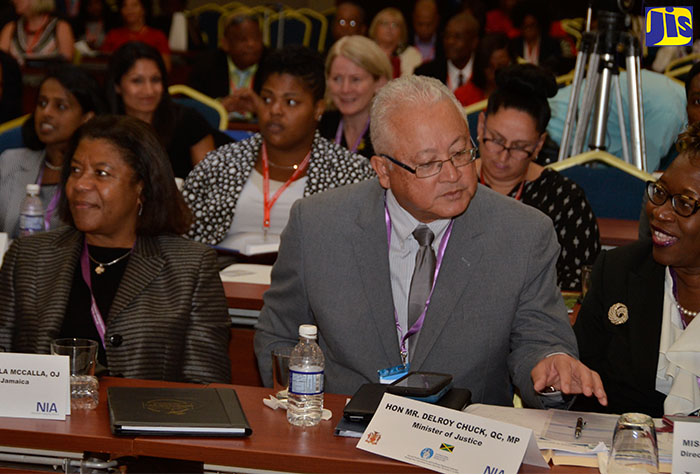Lottery Scamming Cases Clogging Court System in St. James
By: , November 5, 2016The Key Point:
The Facts
- Ms. McCalla said in light of this, resources will have to be provided for extended sittings to handle the volume of cases.
- She pointed out that cybercriminals are becoming more sophisticated, more organised and more innovative in terms of their techniques and geographical reach.
The Full Story
Chief Justice, Hon. Zaila McCalla, says lottery scamming and other cyber-related crimes are clogging the court system in St. James, taking up approximately one third of all cases.
Addressing the opening of the 4th North American and Caribbean Regional Conference of the International Association of Prosecutors (IAP) at the Montego Bay Convention Centre, St. James, on November 3, Ms. McCalla said in light of this, resources will have to be provided for extended sittings to handle the volume of cases.
“The increase in the number of lotto-scamming cases that are coming before the courts has placed a tremendous burden on the court system,” she explained.
“A judge who presided at a recent Circuit Court in this parish reported that although over 40 cases have been disposed of, there still remain well over 100 cases on the list to be tried,” Mrs. McCalla added.
She pointed out that cybercriminals are becoming more sophisticated, more organised and more innovative in terms of their techniques and geographical reach.
“Cybercrime has many faces and is the growing scourge of commerce worldwide. Electronic communications have revolutionised how the world does business and these new communication technologies at times challenge evidentiary rules, grounded in a more tangible form of reality,” the Chief Justice said.
She further explained that the authentication of evidence is one of the most difficult challenges in the courts, especially when seeking to address the admissibility of evidence.
The Chief Justice said the conference is the perfect opportunity to share experiences and challenges inherent in prosecuting organised and cyber-related crimes.
“The discussions will provide further insights into digital forensic evidence in response to international best practices as well as initiatives and strategies being pursued to combat the systemic problem of organised financial crimes,” she said.
“We welcome this opportunity to bring focus on the operations and emerging trends in the criminal underworld. We also welcome the chance to heighten awareness while examining the issues relating to our vulnerability to cyberattacks and organised crimes,” Mrs. McCalla said.


